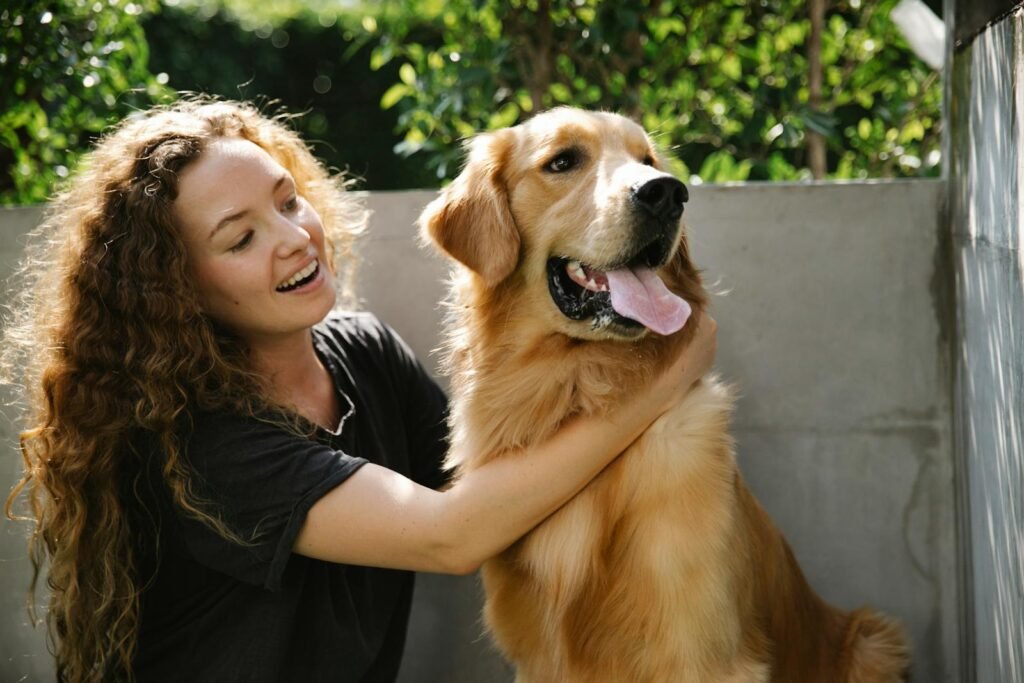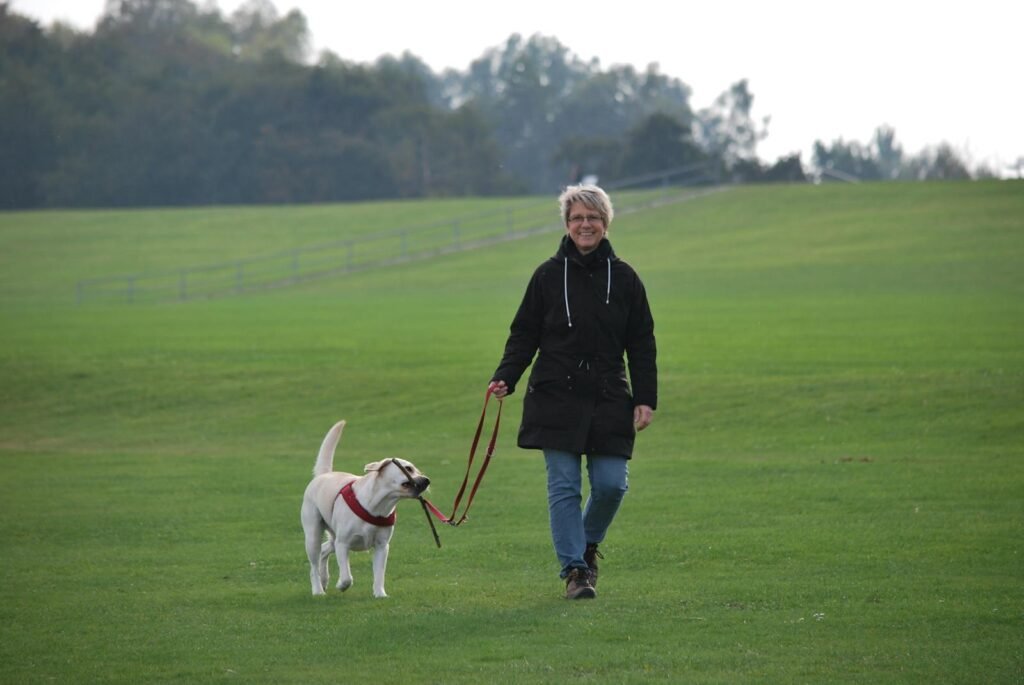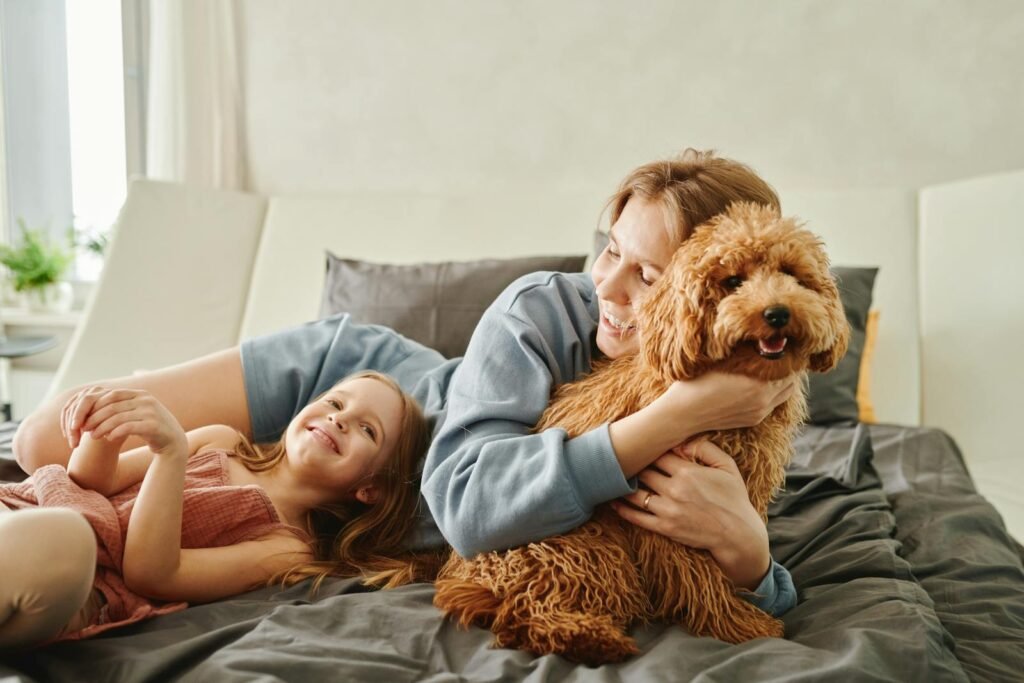A new study has found that many dog owners consider their bond with their pups to be as satisfying—and sometimes more so—than their closest human relationships.
Conducted by Eötvös Loránd University in Hungary and published in Scientific Reports, the research surveyed 717 dog owners between 2011–2013 and 2022–2023. The results suggest dogs don’t just live in our homes—they hold a premium spot in our hearts, rivaling romantic partners, family, and best friends in emotional fulfillment.
Fetching the Facts

Participants rated their relationships with five key individuals: their dog, child, romantic partner, closest relative, and best friend. Thirteen traits were measured, including affection, companionship, reliability, intimacy, and conflict.
The furry companions consistently stood out, scoring high in companionship, support, and dependability—while staying remarkably low in conflict. Compared to human relationships, dogs brought more comfort and fewer arguments to the table.
No Drama, Just Dogma

While romantic partners were rated highest in intimacy, dogs stood out as the clear leaders in overall relationship satisfaction. When compared to best friends or relatives, dogs provided a more consistently positive emotional experience. Owners described their relationships with their dogs as emotionally rich and deeply rewarding, grounded in loyalty, affection, and daily companionship. Unlike human relationships, which can be complicated by misunderstandings, expectations, or emotional strain, bonds with dogs were seen as steady and uncomplicated.
This sense of stability and emotional safety plays a major role in why many people view their dogs as their most fulfilling connection. Dogs offer affection without judgment, presence without pressure, and companionship without conflict. They are always there—through good days and bad—without holding grudges or keeping score. For many owners, this dependable, low-conflict relationship delivers a kind of peace and emotional support that even the closest human relationships may struggle to match.
Man’s Best Plus-One

Lead author Borbála Turcsán explained that the dog-human connection doesn’t replace human relationships—it enhances them.
“Our results showed that it does not replace human relationships but offers something different, a unique combination of characteristics to complement what we receive from the human side of our social network.”
The relationship also features a one-sided power dynamic. Dogs rely on humans throughout their lives for care and guidance, unlike children who grow independent or partners who share equal ground. This control, while unequal, helps explain the harmony many owners report.
Paws That Fit Every Life

Senior author Enikő Kubinyi pointed out that dogs mold themselves into nearly any social role:
“A dog can be a playmate for children, a good flatmate, best friend for young singles, a surrogate child for young couples, a sibling figure once children arrive, a grandchild for empty-nester parents, and perhaps the most important source of social support for elderly people living alone.”
Their adaptability is part of what makes them so essential in modern life—dogs don’t just fit in; they fill in.
Final Pawprint

This study reminds us that dogs are more than loyal companions—they are emotional lifelines, evolving with us through every chapter of life. From energetic puppyhood to senior snuggles, dogs bring joy, consistency, and comfort in ways human relationships sometimes struggle to match.
Whether you’re single, starting a family, or aging alone, the presence of a dog offers something rare: uncomplicated love, unwavering loyalty, and a bond built not on words, but on shared life. In a world full of change and complexity, that kind of connection is more than special—it’s essential.
FrankFar
Sunday 28th of December 2025
Equilibrado de piezas El equilibrado representa una fase clave en el mantenimiento de maquinaria agricola, asi como en la produccion de ejes, volantes, rotores y armaduras de motores electricos. El desequilibrio genera vibraciones que aceleran el desgaste de los rodamientos, provocan sobrecalentamiento e incluso pueden causar la rotura de los componentes. Para evitar fallos mecanicos, resulta esencial identificar y corregir el desequilibrio de forma temprana utilizando metodos modernos de diagnostico.
Principales metodos de equilibrado Existen varias tecnicas para corregir el desequilibrio, dependiendo del tipo de pieza y la magnitud de las vibraciones:
El equilibrado dinamico – Se utiliza en componentes rotativos (rotores, ejes) y se realiza en maquinas equilibradoras especializadas.
Equilibrado estatico – Se emplea en volantes, ruedas y piezas similares donde basta con compensar el peso en un solo plano.
Correccion del desequilibrio – Se lleva a cabo mediante:
Taladrado (retirada de material en la zona de mayor peso),
Instalacion de contrapesos (en ruedas, aros de volantes),
Ajuste de masas de equilibrado (como en el caso de los ciguenales).
Diagnostico del desequilibrio: equipos utilizados Para detectar con precision las vibraciones y el desequilibrio, se emplean:
Equipos equilibradores – Permiten medir el nivel de vibracion y definen con precision los puntos de correccion.
Analizadores de vibraciones – Registran el espectro de oscilaciones, detectando no solo el desequilibrio, sino tambien otros defectos (como el desgaste de rodamientos).
Sistemas laser – Se emplean para mediciones de alta precision en mecanismos criticos.
Las velocidades criticas de rotacion requieren especial atencion – regimenes en los que la vibracion aumenta drasticamente debido a fenomenos de resonancia. Un equilibrado correcto previene danos en el equipo en estas condiciones de funcionamiento.